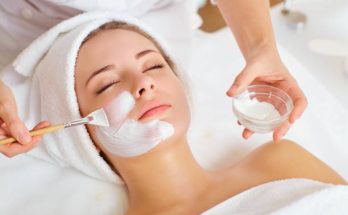Dark spots are a common problem that many people face. Chances are, you have them on your face, chest, and maybe even your hands. While this discoloration can be unsightly, dark spots aren’t typically a cause for concern.
They may however diminish your confidence, which may lead you down the path of finding treatment. Dark spots can be difficult to treat, but that doesn’t mean there aren’t solutions. Sometimes it just takes a little trial and error. In this article, we discuss how dark spots form and explain some current treatment options:
What Are Dark Spots?
Dark spots are exactly what they sound like; dark-colored spots that form on your body. While not everyone experiences dark spots, they’re rather prevalent amongst people. That’s because dark spots (aka hyperpigmentation) are the result of acne scarring or sun damage. Some women experience dark spots as a result of hormonal changes, like during pregnancy. This condition is called melasma and is sometimes referred to as the “mask of pregnancy.”
Certain skin damage can also cause dark spots. For example, cuts, bites, and burns. Harsh skincare products can also lead to dark spots. This is especially true if you have sensitive skin that’s easily irritated. Other skin conditions, like psoriasis and eczema, can also lead to hyperpigmentation.
Regardless of why you have dark spots, your main priority is finding treatment options, right? Below, you’ll find a few tips to help you say “goodbye” to those stubborn spots:
1. Retinoids
Retinoids are derived from vitamin A, a nutrient essential to immunity, cell reproduction, and growth. It’s for these reasons retinoids have garnered popularity in the skincare world. These products increase cell turnover, which can help fade dark spots. Retinoids can also decrease the appearance of wrinkles and fine lines, reduce inflammation, and unclog pores.
Incorporating retinoids into your skincare routine can go a long way in helping fade dark spots. Retinoids also come in many different products and strengths. For example, you can buy over-the-counter products with retinoids or get prescribed a stronger form, like tretinoin. The option you choose depends on what you are comfortable with, as well as the severity of your dark spots.
It’s also important to consider your skin’s sensitivity when starting these products. Starting with a lower percentage retinol cream and working your way up to prescription-level products may be best. Keep in mind retinoids can make your skin more sensitive to the sun. Because of this, make sure you only apply a retinoid at night and wear sunscreen.
2. Vitamin C
Many dematoligists recommend vitamin C as an essential ingredient for healthy and glowing skin. As an antioxidant, it protects against free radical damage. It also promotes collagen production, keeping skin firm, which prevents wrinkles and fine lines from forming.
Last but not least, vitamin C is considered an effective solution for fading dark spots. “How?” you might ask. Vitamin C works by blocking the production of pigment, which can lighten the appearance of your dark spots. Regularly applying vitamin C directly to your skin can brighten your complexion, creating an even skin tone.
One of the best things about vitamin C is how accessible it is. Not only do certain foods, like citrus or tomatoes, have vitamin C, but it’s a popular skincare ingredient too. You can find vitamin C in moisturizers, serums, cleansers, and toners.
It’s important to note that vitamin C isn’t ideal for those with highly sensitive skin. If you’re unsure whether you fall under this category, start by applying a low concentration of vitamin C. If you notice any redness, burning, or other signs of discomfort, stop using it.
3. Cosmetic Procedures
If you’ve tried product after product to no avail, you may want to take a different approach. Cosmetic procedures can have a significant impact on fading dark spots. This is mainly because of the technology used in each procedure. For example, laser therapy is a popular treatment that works by using a beam of light to target the impacted areas. The light is then absorbed into the skin and facilitates the healing process.
A professional chemical peel is another treatment you may want to consider. During the treatment, a chemical solution is applied to remove the top layers of the skin, removing the dark spots. New skin then grows back, that’s smoother and more even.
A professional chemical peel comes in three different forms: mild, medium, and deep. While a mild peel can be effective, it’s typically not as harsh, which can be good for those with sensitive skin. You may need multiple mild chemical peels to see the full results. Medium and deep peels, on the other hand, are harsher, but that may be ideal if you have a lot of hyperpigmentation. Some people experience more dark spots after their skin is damaged during a chemical peel.
4. Avoid Sun Damage
As mentioned above, sun damage can cause dark spots to form. This is because ultraviolet light speeds up the production of melanin, which is what gives skin its color. The more sun damage you have, the more dark spots that’ll appear. Thankfully, there are ways you can avoid sun damage.
One of the best ways to protect yourself against sun damage is to wear sunscreen whenever you go outdoors. But don’t just settle for any type of sunscreen though. Make sure the sun protection factor is at least 30, so it’s strong enough to protect you. Applied regularly, sunscreen also prevents sunburn and skin cancer, and it can reverse the signs of aging.
In addition to applying sunscreen, you should also consider wearing sun-protective clothing when spending time outdoors. Avoiding the sun during peak hours can also help you avoid sun damage. It’s important to note that preventing sun damage doesn’t just help you avoid dark spots — it keeps your dark spots from worsening.
Dark spots are a common skincare concern. Thankfully, medications, cosmetic treatments, and lifestyle changes can help fade dark spots. Keep in mind, though, that it won’t happen overnight. It takes time, and you must be consistent with the products you’re using.



